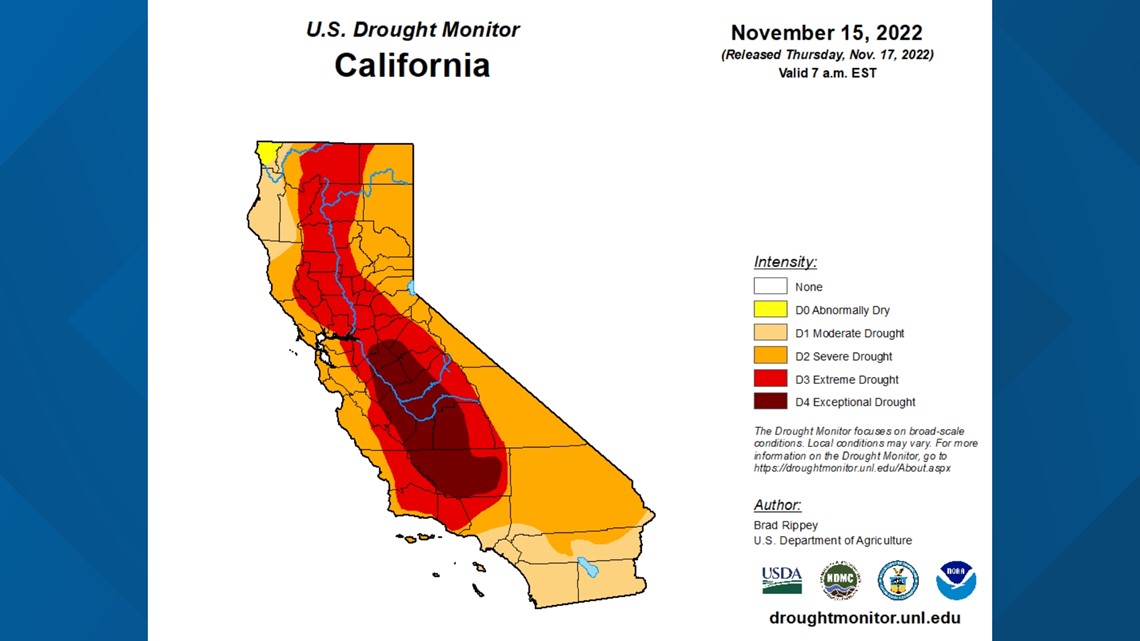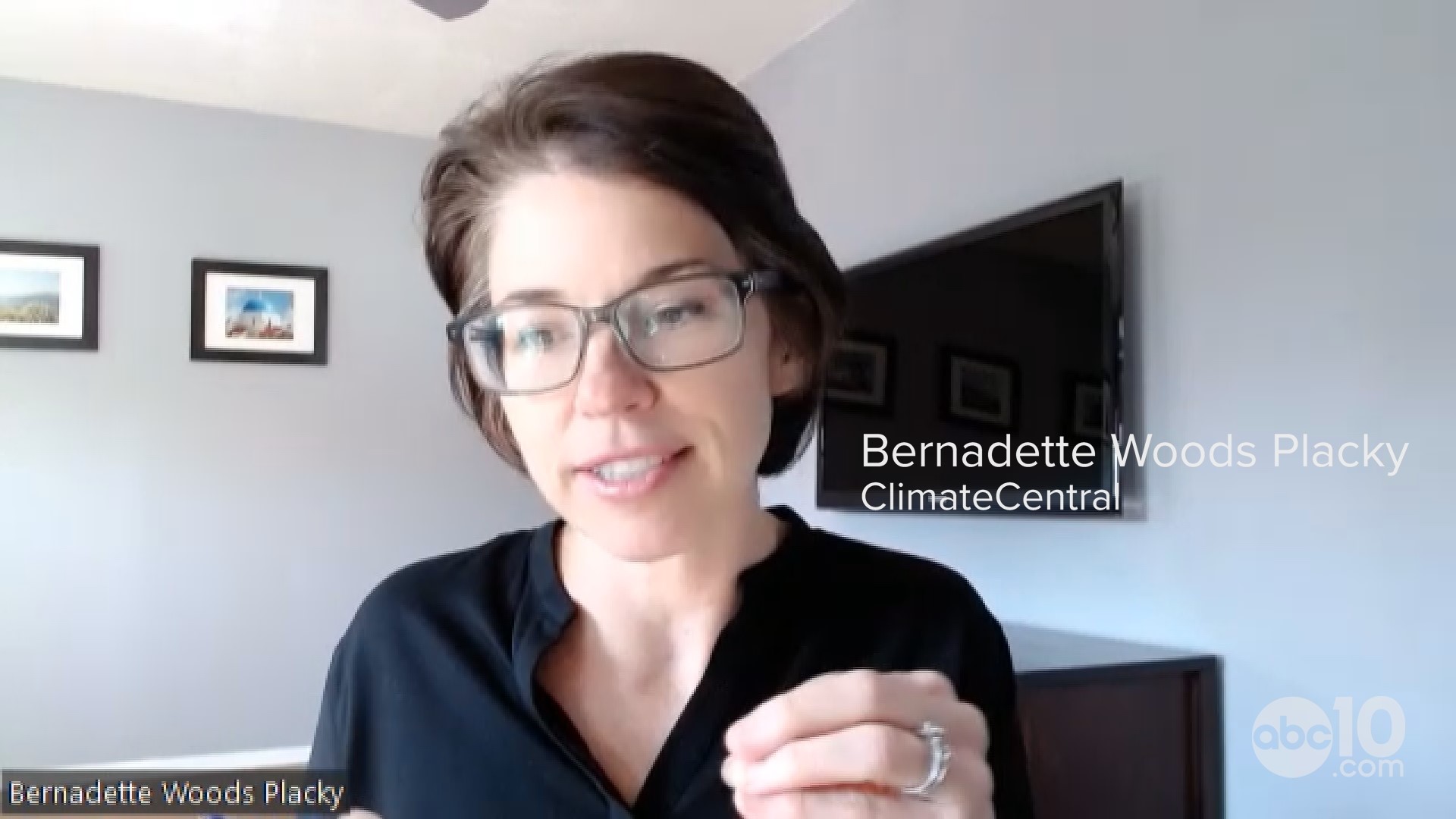SACRAMENTO, Calif. — Minor improvements can be found in the state's drought situation, according to the latest drought monitor.
Data from the early November storm that dumped up to 5 feet of snow in the Sierra and brought soaking rain to the valley is included on this week's monitor. While the storm system didn't vastly improve conditions, it is a decent start to what is a critical year for California's water resources.
Although dry conditions have prevailed since, there are signals that wet weather could be on the way again after Thanksgiving. The two most widely used weather models, the GFS and the Euro, are starting to come into agreement that a wet pattern could take place in the last few days of November and into December.


Californians understand the importance of atmospheric rivers and the role they play in busting drought. Last December, the Sierra saw 18 feet of snow in a three-week stretch of December, falsely providing hope that the drought was over. Of course, that was not the case.
The snowiest December on record was followed by the driest start to a calendar year in California history. Warm, sunny conditions dominated the state under what has been coined a "ridiculously resilient ridge" by climate scientists.
This type of precipitation volatility, or "climate whiplash", is what can be expected as climate change takes more of a hold on California's already feast-or-famine precipitation patterns.
Research over the past decade has proven that extreme events, such as California's record-setting wildfires and the ongoing drought, can be scientifically tied to climate change.
"Over the past decade or so, the area of what's called attribution science, where we can go into individual weather events and tease out the role of climate change has advanced dramatically," said Bernadette Woods Placky, Chief Meteorologist and Climate Matters Program director at Climate Central, fresh off her visit to Egypt for this year's Conference of the Parties (COP).
The COP is an annual conference that brings together delegates from 190 countries to create policies and address issues related to climate change. This year's COP stressed the importance of limiting warming to 2 degrees Celsius with an aspiration of 1.5 degrees Celsius.
The rapidly advancing field of attribution science allows scientists to analyze the role climate change plays in extreme events and understand the future impacts of a changing climate.
One specific study from COP linked Nigerian flooding to climate change and found that the event was 80 times more likely due to atmospheric warming, according to Woods Placky.
Here in California, the last decade has featured the largest and most deadly wildfires in history and two separate droughts. The severity of both wildfires and droughts have been directly linked to climate change.
Climate change is a dark, mentally draining topic, but the latest COP left Woods Placky with hope and a feeling that there was still time to right the ship.
"I feel energized," Woods Placky said.
WATCH ALSO:

















